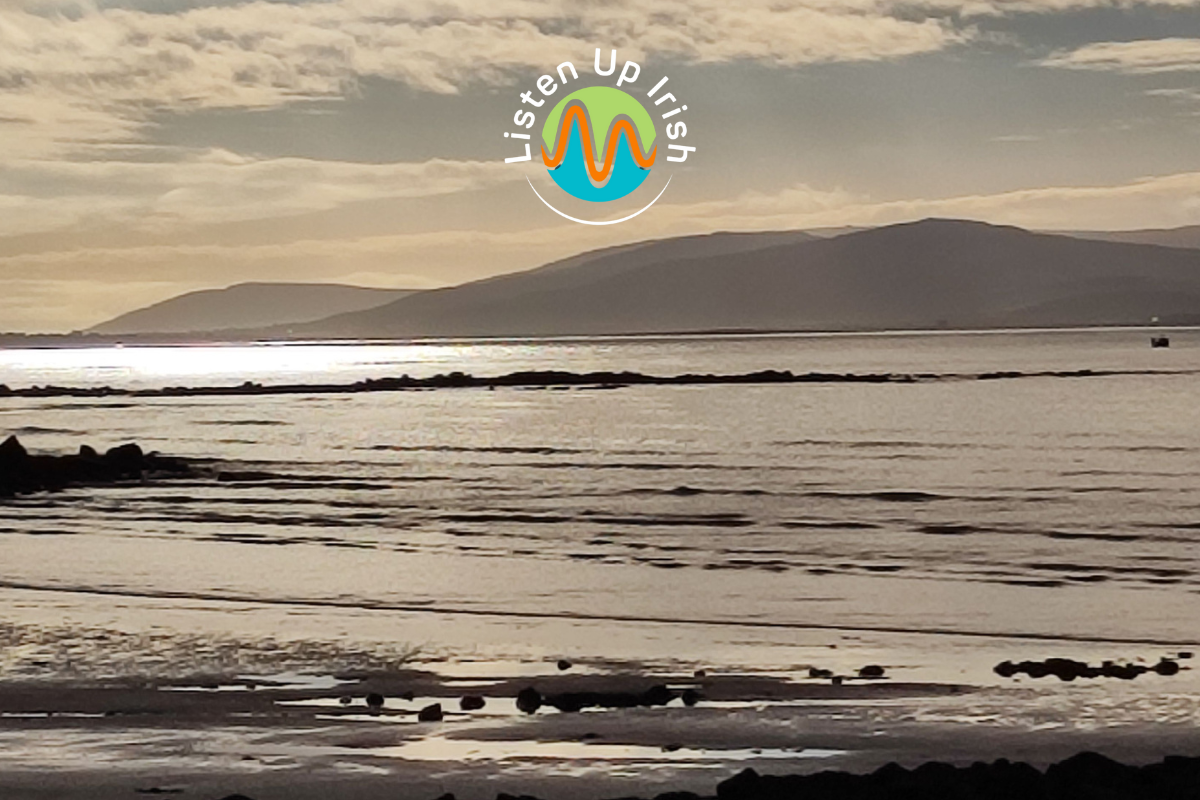Talking about Time in Irish
Sometimes it’s the little words in a language that can be the most difficult of all! Using prepositions correctly (for, under, in, at etc.) can be quite tricky when learning a new language. How the word ‘for’ is used when talking about time is a good illustration of this.
Bhí mé in Éirinn an samradh seo caite ar feadh míosa.
I was in Ireland last summer for a month.
Tá mé i mo chónaí i Sasana le dhá bhliain anois.
I am living in England for two years now.
From the above examples you will see that where in English the word ‘for’ is used in both examples above, in Irish ‘ar feadh’ is used in one example and ‘le’ in the other.
What is the difference, and how can we know when to use ‘ar feadh’ and when to use ‘le’?
Ar feadh
In Irish ‘ar feadh’ is used to indicate an interval of time - there is a start and endpoint. Here are some examples:
Bhí mé i mo dhúiseacht ar feadh na hoíche.
I was awake all night.
Fanfaidh mé i Londain ar feadh seachtaine.
I will stay in London for a week.
Cheap mé ar feadh i bhfad nach dtiocfadh biseach orm.
I thought for a long time that I would not get better.
Bhí sí ina mac léinn i mBaile Átha Cliath ar feadh ceithre bliana.
She was a student in Dublin for four years.
Fanfaidh mé ort ar feadh tamaill, ach ní fhanfaidh mé ort an lá ar fad bíodh a fhios agat!
I will wait for you for a while, but I won’t wait for you all day, you know!
Bhí sí anseo ar feadh cúpla nóiméad, ach ansin d’imigh sí.
She was here for a couple of minutes, but then she left.
D’oibrigh sí mar mhúinteoir ar feadh na mblianta.
She worked as a teacher for years.
(aside: note that in Irish we say ‘for the years’( ar feadh na mblianta)… sometime the article (the) is used in Irish where it would not be used in English and vice versa).
You will note from the examples above that it is not necessary that the start and endpoints of the time interval be clearly defined - e.g. ‘ar feadh tamaill’ (for a while); ‘ar feadh i bhfad’ (for a long time); ‘ar feadh cúpla nóiméad’ (for a couple of minutes); ‘ar feadh na mblianta’ (for years).
(Aside: notice that the tuiseal ginideach follows ‘ar feadh’: coicís / ar feadh coicíse; seachtain / ar feadh seachtaine; an lá / ar feadh an lae; an mhí / ar feadh na míosa. Confused about the Tuiseal Ginideach? Don’t be! Conquer the Tuiseal Ginideach for once and for all with our dedicated Tuiseal Ginideach course).
Le
On the other hand if the endpoint of a time interval has not yet arrived (e.g. you are still living somewhere) then ‘ar feadh’ cannot be used. In this instance we use the preposition ‘le’ instead.
Tá mé i mo chónaí i nGaillimh le ceithre bliana anois.
I am living in Galway for four years now. (i.e. I am still living there, my time interval in Galway has not ended yet).
Tá sí tinn le seachtain.
She is sick for a week. (i.e. she is still sick - there is no endpoint to the time interval yet)
Tá sí ag obair mar mhúinteoir le cúig bliana anois.
She is working as a teacher for 5 years now. (and she is still working as a teacher at this point in time)
(Aside: Notice from the examples above that we use the present tense in Irish where there would be a tendency to use the continuous past tense in English - I’ve been living / she’s been sick / she’s been working. The way in which verbs are used is not always identical between any two languages, and this is a good example of this!)
Mar fhocal scor…
As a parting word…
Prepositions can be a tricky aspect when learning a new language, as they very often do not correspond neatly between any two languages. Look at the examples below where the preposition ‘for’ is used in English, but another preposition entirely (or none at all) is used in Irish:
He is waiting for the bus Tá sé ag fanacht ar an mbus
She paid for the meal D’íoc sí as an mbéile
He asked me for a favour D’iarr sé gar orm
He sold his car for 500 euro Dhíol sé a charr ar 500 euro
Thank you for the present Go raibh maith agat as an mbronntanas
It takes time to become familiar with a new language, and to know which preposition to use in each situation. Repeated exposure is required in order for a new phrase to become second nature. There is a lot of repeated exposure built into my online Irish language courses - both the self-study and live options. Regardless of what level you are at there is an Irish language course to suit you. Read all about my online Irish language courses here.




